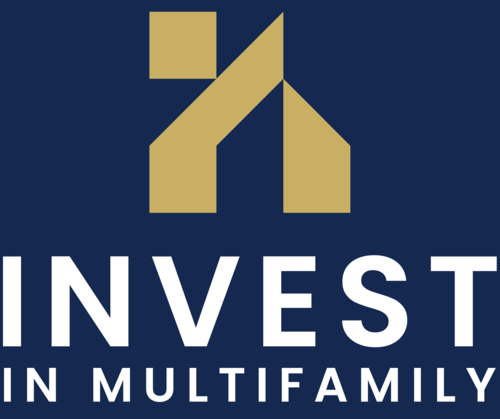An In-Depth Analysis for Sophisticated Investors
Investing in apartment complexes can be a lucrative venture, but managing these properties can often become a time-consuming and complex task. For investors, the decision to hire a property manager is not just about convenience; it’s a strategic move to ensure optimal performance and profitability of their investments. This article delves into the costs associated with hiring a property manager for apartment properties, offering a detailed analysis to help you make an informed decision.
Key Takeaways
- Property management fees for apartments typically range from 6% to 10% of the monthly rental income.
- Flat fees can range between $100 to $400 per unit per month.
- Additional costs may include setup fees, maintenance fees, and eviction fees.
- The cost structure can vary significantly based on the property’s location, size, and the level of services required.
Understanding Property Management Fees
Percentage-Based Fees
One of the most common fee structures in apartment property management is the percentage-based fee. Property managers typically charge between 6% to 10% of the monthly rental income. This model aligns the manager’s interests with the property owner’s, as their income depends on the property’s performance, according to iPropertyManagement.com. For properties with more than ten rental units, fees can be even lower, typically between 4% to 7% of the monthly rent, as stated from HomeGuide.
For example, if your apartment unit rents for $1,500 per month, you might expect to pay between $90 and $150 monthly for management services. This fee usually covers general management tasks such as tenant screening, rent collection, and maintenance coordination.
Flat Fees
Some property managers prefer to charge a flat monthly fee, which can provide predictability for property owners. This fee usually ranges from $100 to $400 per unit per month, depending on the property’s location and the complexity of management required (iPropertyManagement.com) (HomeGuide). A property in a high-demand urban area might command a higher flat fee due to the increased workload and service demand.
Additional Fees
Beyond the standard management fees, property managers often charge additional fees for specific tasks outside regular services, according to iPropertyManagement.com. These can include:
- Setup Fees: A one-time fee, often around $100 to $300, for establishing your account and inspecting the property .
- Maintenance Fees: Charges for coordinating and overseeing repairs, which can include a markup on repair costs, typically around 10% to 20% .
- Tenant Placement Fees: Equivalent to one month’s rent or a flat fee ranging from $300 to $500, covering the cost of finding and placing a new tenant .
- Eviction Fees: Costs associated with handling the eviction process, which can range from $200 to $500.
- Lease Renewal Fees: Some property management companies charge a fee for renewing leases, typically between $100 and $200 per renewal (HomeGuide).
- Vacancy Fees: Managing vacant units can incur additional costs, usually ranging from $50 to $100 per month per unit.
Strategic and Impactful Insights
The Value Proposition of Property Management
While the costs of hiring a property manager can add up, the convenience and professional oversight provided often justify the expense. For investors, the time saved and the assurance of professional management can be invaluable. Property managers can help streamline operations, ensuring timely rent collection, efficient maintenance, and effective tenant management.
Tax Deductibility
Another critical consideration is the tax implications of property management fees. These expenses are often tax-deductible, which can offset some of the costs. Consulting with a financial advisor who specializes in real estate investments can help you navigate these deductions and maximize your tax benefits.
Geographic Variations
The cost of property management can vary significantly based on geographic location. Properties in high-demand urban areas typically incur higher management fees due to the increased complexity and workload. Conversely, properties in suburban or rural areas might have lower fees, reflecting the reduced management intensity. Understanding these regional differences is crucial for making informed decisions (iPropertyManagement.com).
Challenges and Considerations
Weighing Costs Against Benefits
For investors, the primary challenge is weighing the costs of property management against the benefits. High-rent properties, for instance, might see significant management fees that could impact overall profitability. It’s essential to evaluate whether the services provided justify the costs and contribute to the property’s long-term success.
Customizing Services
Not all properties require the same level of management. Some investors might only need basic services like rent collection, while others might require comprehensive management, including maintenance, tenant placement, and financial reporting. Customizing the level of service to match your needs can help control costs and ensure you’re only paying for what you need.
Contractual Obligations
Understanding the terms of your property management contract is vital. Many contracts include clauses for early termination fees, vacancy fees, and other charges that can affect your overall costs. Carefully reviewing and negotiating these terms can help avoid unexpected expenses.
Broader Context and Implications
Future Trends in Property Management
The property management industry is evolving, with technology playing an increasingly significant role. Automated rent collection, online maintenance requests, and digital tenant screening are becoming standard practices. These innovations can enhance efficiency and reduce costs, making property management more accessible and effective for investors.
Comparing Historical Data
Historically, property management fees have remained relatively stable, but the services included have expanded. Comparing current fees with historical data can provide insights into the value offered by modern property management companies. Understanding these trends can help investors make more informed decisions per HomeGuide.
Conclusion
Hiring a property manager for your apartment properties is a strategic decision that can significantly impact the success of your real estate investments. By understanding the various fee structures, additional costs, and the value proposition of professional management, you can make informed choices that align with your financial goals. Whether you opt for percentage-based fees or flat fees, the key is to ensure that the services provided justify the costs and contribute to the long-term profitability of your properties.

